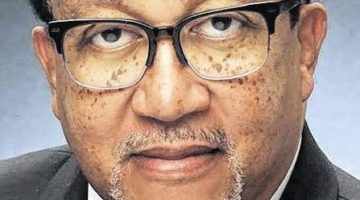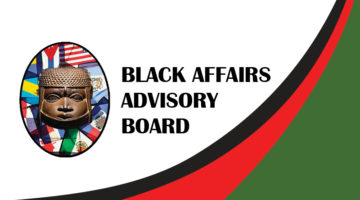AP National Writer
Although you rarely hear racial insults on Main Street these days, there’s a place where unashamed bigotry is all too easy to find: tossed off in the comments sections of some of the Internet’s most popular websites, today’s virtual Main Street.
Internet anonymity has removed one of the strongest barriers to the type of language that can ruin reputations and end careers. Racist messages are a small percentage of the wild and woolly web, but they stick out since they are rare in person – and they raise a host of questions.
Do these comments reflect a reversal of racial progress? Is that progress an illusion while racism thrives underground? What kind of harm are these statements doing? Could there be any value in such venting? And what, if anything, should a free society do about it?
CIVIC DISCUSSION
“We’ve seen comments that people would not make in the public square or any type of civic discussion, maybe even within their own families,” said Dennis Ryerson, editor of The Indianapolis Star. “There is no question in my mind that the process, because it’s largely anonymous, enables people who would never speak up on Main Street to communicate their thoughts.”
At the newspaper’s website, moderators delete individual racist comments that are brought to their attention, and will take down a whole thread if such comments persist. On some stories that are expected to provoke racism, the entire comments section is disabled beforehand, a practice shared by a growing number of newspapers.
On a single day recently, racially offensive online remarks were not hard to find:
In a comment on a Yahoo News story about a black civil rights era photographer revealed to be an FBI informant, someone called blacks farm animals who “were not and are not wanted in this society.”
Another commented, “We all know who MADE America what it is today, and we also know which group is receiving hefty tax dollar pay outs… so until the tables turn the only thing you should be saying is ‘thank you’ to all the hard working (whites) who gave you the life you now take for granted.”
CRUDE EPITHETS
Black racism was evident, too. One person on the site wondered if the FBI beat information out of the photographer: “You know how white people do.” On a BlackVoices.com story about two black sisters jailed 20 years for an $11 robbery, someone used several crude epithets to suggest that the judge was a white racist.
A USAToday.com story about demographic changes in the nation’s kindergartens turned into open season on Latinos. “Go to any ER, school, jail and see first hand what race is over consuming precious US resources?” one comment said. Another complained in ugly terms about Latino birthrates.
Some believe such comments indicate that racism has not declined as much as people may think. Joe Feagin, a sociologist at Texas A&M University, said a study he conducted of 626 white college students at 28 institutions revealed thousands of examples of racism in “backstage,” all-white settings.
RACE HATRED
Are these comments cause for alarm?
“Like the loudest ambulance siren you’ve ever heard,” Feagin replied. “All this stuff was already there. It’s just the Internet has opened a window into it that we normally would not have had.”
Linda Chavez, chairwoman of the conservative Center for Equal Opportunity, says racist comments come from a “very small but often vocal minority of people. Most Americans do not like this type of coarse race hatred.”
Chavez has received plenty of racist comments in response to her online writings. “My sense, based on their grammar and spelling, is they’re not the people who are hiring. These are not influential people who make policy.” But she does see a destructive aspect: “It may actually increase the percentage who will feel comfortable expressing these views. Social pressure is important.”
Racist comments may scare average people away from productive conversations about race – conversations that are moving rapidly into the digital domain from print publications, town
halls, street corners and shopping malls.
“When there are forums about race, people flock there to do battle,” said Eric Deggans, a reporter and blogger for the St. Petersburg Times. Whenever he blogs about race, “about 20 percent of the comments will be straight-up racist. Another 20 percent are questionable.”
PERSONAL ATTACKS
The racial comments and other personal attacks have made Deggans, who is black, feel more defensive, as if he’s always under attack: “It wears you down after a while.”
“I have to constantly coach myself to dial down the hurt and the anger, because you get three comments that are really hurtful and prejudiced but the fourth is someone who wants to have a genuine conversation,” he said.
Some journalism observers believe real names should be required to post comments, some of which would never be chosen for publication in the traditional “letters to the editor” section.
“It astonishes me that they allow such blatant expressions,” said Robert Steele, a journalism scholar at DePauw University and The Poynter Institute.
The comments sections of media websites are meant to foster community discussion and keep people engaged with the site, which in turn generates revenue for an industry still struggling to make money online.
“Even if it’s legitimate to try and draw viewers to sites, is it legitimate to allow individuals who are swinging a sharp ax, and often doing so with a hood over their heads in anonymous fashion, to have this forum that can not only create harm but breed hatred?” Steele asked.
CITIZEN DIALOGUE
As champions of free speech and enemies of censorship, journalists take care to tailor any proposed limits.
“I recognize the value of citizen dialogue,” Steele said. “But when the comments are poisonous … you have to go back to the issue of why you would allow the dialogue.”
“For me, all the problems of online anonymity and comments outweigh any imagined benefits,” said Herb Strentz, a retired journalism professor and dean at Drake University in Des Moines. “If people want to contribute thoughtful things, they should be willing to stand up for them and be quoted.”
Polls and studies that measure racism are hotly debated because most people won’t acknowledge prejudice to a stranger, the subject is so subjective and politically charged and many people of all races may not even recognize their own biases.
MAJOR CHALLENGE
On one side sits evidence that racism remains a major challenge: For instance, some 40 percent of white Americans hold at least a partly negative view toward blacks, according to a 2008 Associated Press-Yahoo poll that focused on racial attitudes and the presidential election.
On the other are signs of progress: The percentage of African-Americans saying black people’s situation improved over the last five years has doubled since 2007, to 39 percent, according to a 2010 Pew poll. The poll also found that 70 percent of whites and 60 percent of blacks believe the values of the two groups have become more similar.
These surveys all measured racial attitudes in what used to be known as the “real world.” Today, “the digital space IS the real world,” said Pablo Boczkowski, a professor in Northwestern University’s Media, Technology and Society program.
“We always had people shouting on the street,” Boczkowski said. “It was a handful of people, and the sender of the message could be clearly identified. Now the audience is much bigger, it’s more unknown, it’s more diverse potentially, and this has changed the dynamics of the game.”
DISCRIMINATION ON LINE
The dynamics of racism on the recipient can be powerful online, said Brendesha Tynes, a professor of psychology and African-American studies at the University of Illinois.
Her study of 264 Midwestern high school students found that 20 percent of whites, 29 percent of blacks and 42 percent of “other” or multiple races reported being personally subjected to racial epithets or other discrimination online – and that these youths were more likely to feel depression or anxiety. The study was published in the Journal of Adolescent Health.
“We’ve made a lot of progress online and offline on race relations, but you can go into some of these spaces and it will take you back to pre-civil rights times,” Tynes said.
“The danger is, people see other folks online saying whatever they want to say, and they think it’s acceptable online behavior,” she said. “Over time, that might become an acceptable way to talk about race online.”
Public disapproval has played a major role in reducing face-to-face racist speech and Tynes noted that public complaints can get racist comments removed from popular places like Facebook. But, she added, “the Internet is just too vast to say that certain groups’ disapproval will impact the way people express race online.”
She believes more education and discussion are needed: “Even though we talk about a post-racial America, race has never been more salient than it is right now.”
ANONYMOUS ATTACKS
So what types of people are typing these anonymous attacks? The white homeowner who smiles at his black neighbor? Minorities trying to make whites look bad? People of any race just looking for a thrill?
Jared Taylor, who is white and calls himself a “race realist,” believes that whites and Asians are more intelligent than Hispanics and blacks. He avoids using racial slurs and his organization’s website does not allow racial insults – but he has an explanation for the source of the comments: “Intense frustration among ordinary whites at what they see as coddling and excuse-making for blacks and Hispanics.”
“Many, many whites are hopping mad about that kind of double standard,” he said in an e-mail interview. “Their frustrations are never voiced in the mainstream media, and anger provokes crude language. … Most of those people probably never use racial slurs when they speak. This gives them a chance to commit what is considered a great and shocking sin and get away with it.”
Is there any value in venting online? Ryerson, the newspaper editor, said a mental health professional once told him that the act of writing virulent letters to the editor probably provided a “safety valve” – because knowing the letter would be read, if only by the editor, could deter the writer from violence.
“The only problem,” Ryerson said, “is we didn’t print those letters.”
RACIST OVERTONE
Nathan Schroeder, national secretary for the Supreme White Alliance – whose website warns visitors of its “racist overtone” – says people who share his views benefit from online anonymity.
He said many white people “aren’t to that point yet where they will openly come out and say, ‘I stand for this. I am proud of my heritage. I want to preserve my people.’ They don’t want their close friends, families, what have you, to find out so they are more comfortable speaking about it on the Internet.
“Regardless, they still feel the same feelings that we do, whether they want to be open right now about it or not.”
The number of U.S. hate groups has more than doubled in the last 10 years, according to the Southern Poverty Law Center, up to 932 hate groups in 2009. Deborah Lauter, civil rights director for the Anti-Defamation League, said there are thousands of hate websites – “more than we can possibly keep track of.”
The most popular hate websites draw tens of thousands of visitors each month. Mainstream sites draw into the millions – and some comments there would not be out of place within the Supreme White Alliance.
RECENT STORIES
Many people were angered by recent stories on the Des Moines Register website about black youths who attacked white patrons at the Iowa State Fair. An early report said the black youths were heard saying it was an occasion to beat whites, although police later said that could not be verified and did not press hate-crime charges.
One anonymous comment said slavery should never have been ended, while another wrote that blacks should be put in a coliseum with guns and left to kill each other, said Strentz, the retired professor.
He believes there is still much racial progress to be made in America.
“Even if we do away with anonymity, we clean up the comments online, well, that’s just treating the symptoms,” he said. “We really haven’t solved anything, except on the surface.”
Associated Press Writer Heather Hollingsworth in Kansas City contributed to this report.
BOYZELL HOSEY/ST. PETERSBURG TIMES. Racism Worries: Eric Deggans, St. Petersburg Times media critic, who maintains a blog entitled “The Feed” on the newspaper’s website, grapples with offensive comments.









No Comment